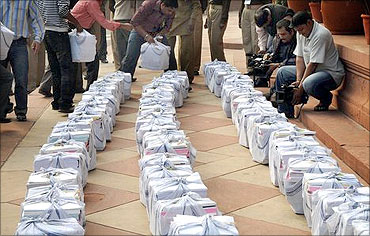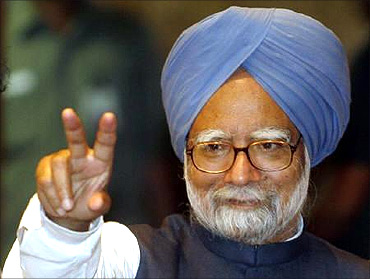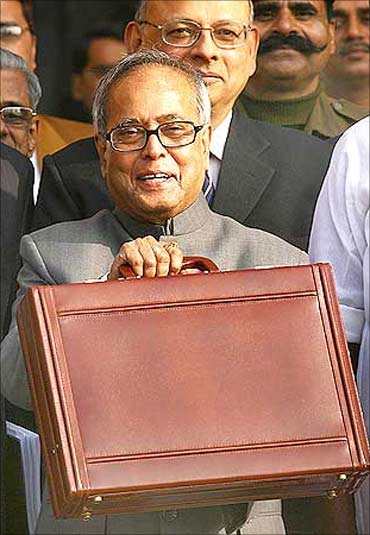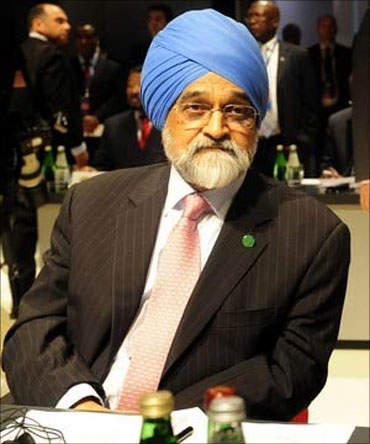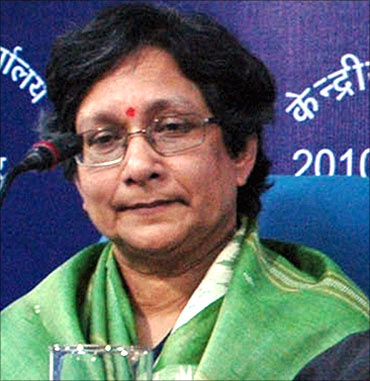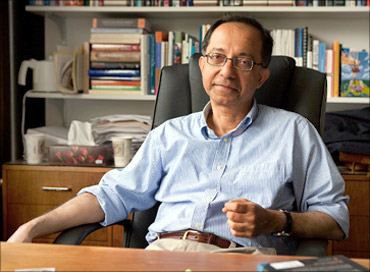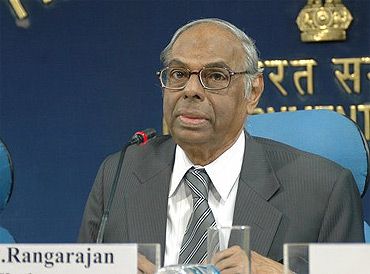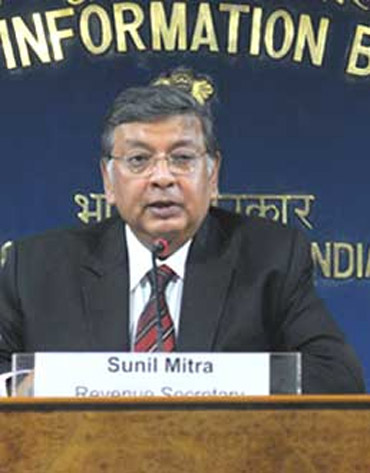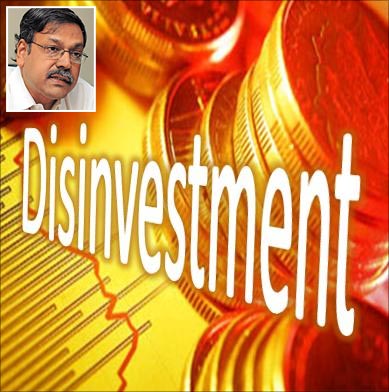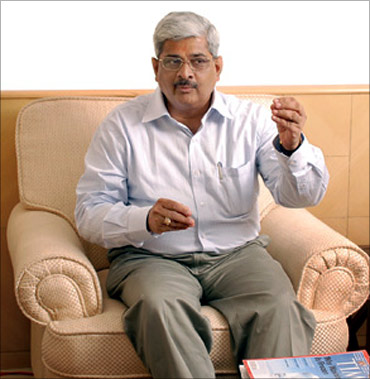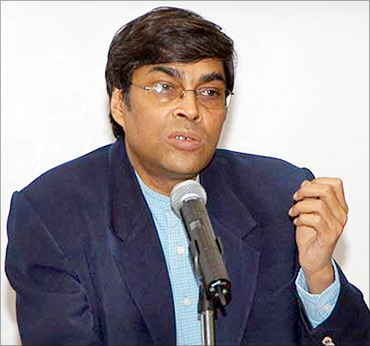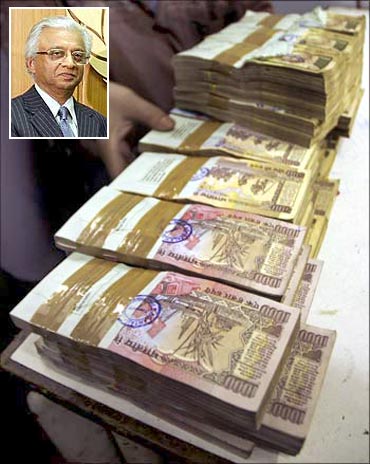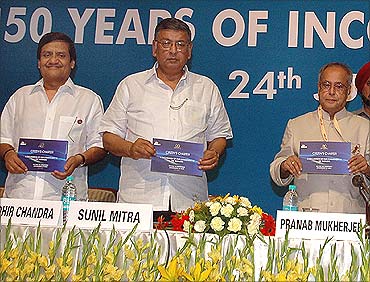 | « Back to article | Print this article |
Meet the key people behind the Budget
Here's a look at the key members who make the country's biggest fiscal package.
Click NEXT to read on
Meet the key people behind the Budget
The prime minister holds talks with the finance minister, economists, and senior officials to present a balanced Budget, beneficial to key sectors and the common people.
In 1991, the liberalisation process ushered in by Manmohan Singh opened India's gates to foreign direct investment. Industrial growth picked up, inflation was brought under control and growth rates remained high.
Manmohan Singh has also served as an economic advisor to the finance ministry in the late 1970s, and has been deputy chairman of the Planning Commission. He has served as the Governor of the Reserve Bank of India from 1982 to 1985.Click NEXT to read on
Meet the key people behind the Budget
Finance Minister Pranab Mukherjee is bullish on India's growth. Mukherjee said that the economy would grow by 8.5 per cent despite rising inflation.
He faces the daunting task of containing inflation, controlling the burgeoning fiscal deficit and at the same time maintaining growth. In the 2010 Budget, Mukherjee offered relief to tax payers by changing the tax slabs.Click NEXT to read on
Meet the key people behind the Budget
India's manufacturing sector needs to grow at 12 per cent for India to sustain its economic momentum, Planning Commission Deputy Chairman Montek Singh Ahluwalia has said.
India will double its investments in infrastructure to $1 trillion during the 11th Five Year Plan that begins 2012, with half of that expected from the private sector, he said.
Ahluwalia was appointed as Deputy Chairman of the Planning Commission by the United Progressive Alliance government on 16 June 2004, and was reappointed to the post in June 2009.Click NEXT to read on
Meet the key people behind the Budget
One of the main architects of the Budget, India's first woman Finance Secretary, Sushma Nath will hold this coveted position till May 31.
Nath, who was the Expenditure Secretary, succeeded Ashok Chawla after he retired on January 31. The senior most official in the finance ministry, Sushma Nath has been working as Secretary in the Expenditure Department since April 2008.A 1974 batch Indian Administrative Service (IAS) officer from Madhya Pradesh cadre, she will continue as the expenditure secretary till May.
Meet the key people behind the Budget
Chief Economic Advisor Kaushik Basu, a professor at Cornell University in the US, joined the finance ministry in December 2009. He has been involved in the budget-making process since the beginning.
Besides drafting parts of the finance minister's Budget speech, he will oversee preparation of the Economic Survey, which is presented before the Budget.Click NEXT to read on
Meet the key people behind the Budget
C Rangarajan, the chairman of the Prime Minister's Economic Advisory Council has forecast the fiscal deficit to stand at 5.2 per cent of the gross domestic product (GDP), lower than the budgeted 5.5 percent.
Rangarajan expects the headline inflation to ease to 7 per cent by March, from 8.23 percent in January
A former Reserve Bank Governor, Rangarajan is a close confidant of Prime Minister Manmohan Singh. He was also member of the Planning Commission.Click NEXT to read on
Meet the key people behind the Budget
Click NEXT to read on
Meet the key people behind the Budget
Bose, 1976 batch IAS officer from Madhya Pradesh cadre, was with the Finance Commission for two years.
Hi suggestions are crucial while making the Budget as a portion of the government's capital expenditure on social sector programmes is met from disinvestment proceeds.Click NEXT to read on
Meet the key people behind the Budget
R Gopalan, a 1976 batch IAS officer from the Tamil Nadu cadre, the banking and financial services insurance secretary also has the additional charge of Department of Economic Affairs (DoEA).
Click NEXT to read on
Meet the key people behind the Budget
Shubhashis Gangopadhyay
Shubhashis Gangopadhyay, took over as advisor to the Finance Minister in 2008. A renowned economist with a doctoral degree from Cornell University in the US, Gangopadhyay was working as director of India Development Foundation.
Click NEXT to read on
Meet the key people behind the Budget
T K A Nair, Principal Secretary to the PM holds meetings with top officials and corporate heads. One of the most powerful bureaucrats, he makes important notes on several policy issues.
Nair, a retired IAS officer of the Punjab cadre, was made the Principal Secretary to the Prime Minister in 2004.
Click NEXT to read on
Meet the key people behind the Budget
CBEC Chairman S Dutt Majumder and CBDT Chairman Sudhir Chandra worked on last year's Budget as well.
